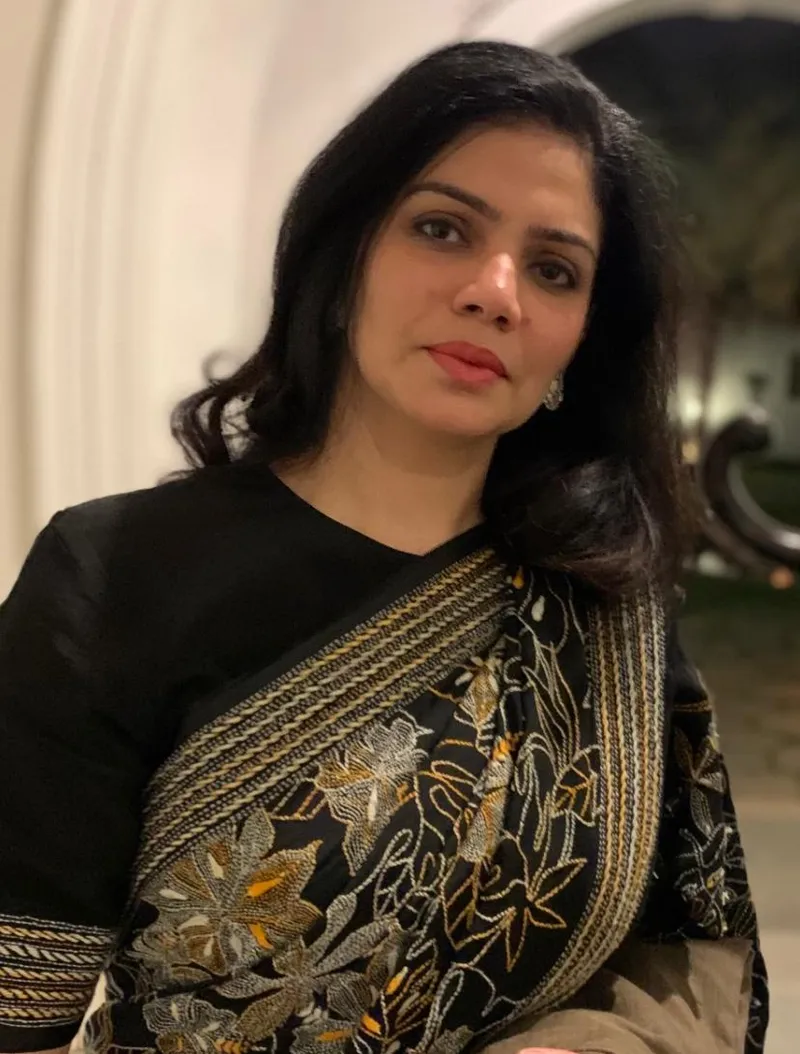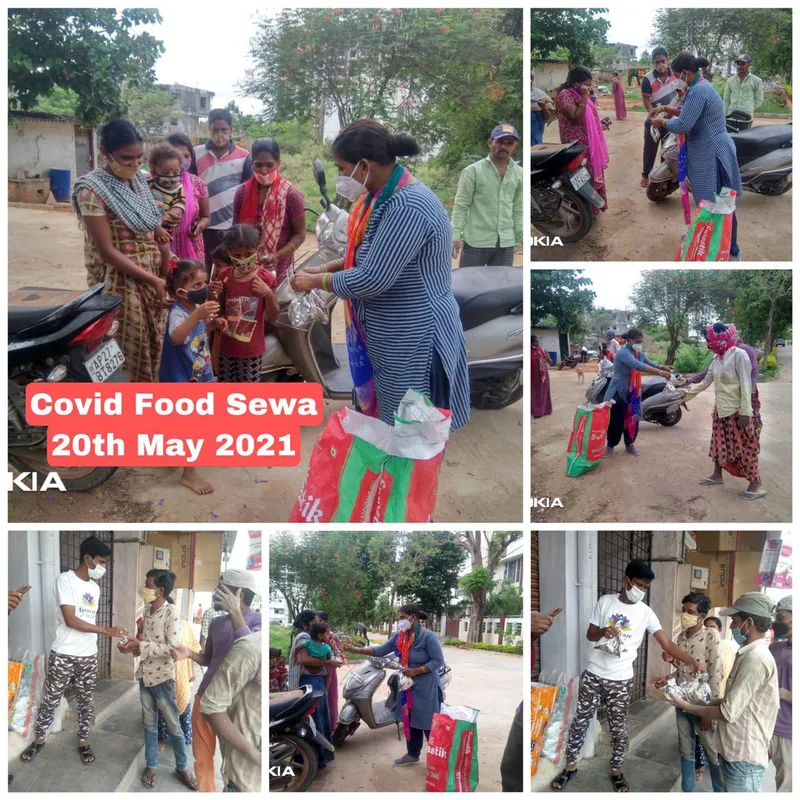After feeding over 10,000 children amid the pandemic, this Aangan is ensuring that underprivileged kids continue learning
Bengaluru-based interior designer Harsanjam Kaur tells HerStory about Aangan, the study centre she runs for Ammucare, an NGO. Through the pandemic, she and her team have worked to provide the underprivileged with food, shelter, and education.
Harsanjam Kaur, better known as Harry, has always identified herself as a spiritual person. And this facet of her nature led her to Ammucare, a platform for service to uplift the helpless and needy. She believes that she “found a purpose there”.
This Leeds, UK, MBA alum, who hailed from a business family in Kolkata, never envisioned a career in the way that others did.
“I got all the support for studies, but career wasn’t something we could pursue. I was married at 26 and over these years, we’ve stayed in multiple locations and changed our home as many times. I actually enjoyed setting up our home every time; this led to my calling for interior design. I did formal course and today I am a successful interior designer,” she says.
But her passion for helping the needy persisted.
The turning point was a trekking and meditation trip to Mount Kailash organised by Ammucare, with participants from various parts of India and five other nations.
“The experiences of these people inspired me to be associated with Ammucare’s cause. I feel even if I am able to make a difference to a single life, I would attain something. We are all so caught up in our lives that one needs to make a conscious choice to allocate our bandwidth in helping others,” Harry says.

Running an Aangan
In 2018, now based out of Bengaluru, Harry decided to run an Ammucare ‘Aangan’ or study centre.
“We fondly call it Mohanji ka Aangan; it is named for the founder of Ammucare. This centre helps around 65+ children whose parents are mostly migrant workers doing construction work, leaving the kids unattended for a large part of the day. I saw this as an opportunity to help them and their parents,” Harry says.
She says they try to follow a holistic approach of teaching for these kids so that they feel a part of society as they grow up. Apart from academics, Aangan helps children with medical checkups, health and hygiene for teenage girls, and monthly food kits (rice, pulses, sugar and cooking oil for a family of four).
“We conduct events – drawing competitions, joy of giving, Children’s Day — to bring compassion and joy into their lives.”
Ammucare takes care of the rent and teachers’ salary, and Harry arranges funds from crowd-sourcing – friends and their friends.
The impact of COVID-19
Work at Aangan was continuing according to plan when the COVID-19 pandemic hit, impacting the livelihood of many migrant labourers.
“It became even worse amid the lockdown, with multiple people from a family living in a small space. Alcoholic fathers and physically abusive spouses add to the nightmare of children and women within this section of the society. We had to stop the Aangan during lockdown, but continued the food seva,” Harry says.
She says they have expanded this seva beyond Aangan to different parts of North Bengaluru, and have served over 10,000 people (Ammucare has distributed food to over 42,000 people across seven cities in India).
"The Aangan team has been tirelessly working for daily food seva, and distribution of mask and sanitisers. With the lockdown restrictions, it was difficult to connect with many people. We reached out to the local administration and police, and took up this daily distribution. Word of mouth and social media has done wonders,” Harry says.
Starting small
But the journey hasn’t been easy for Harry.
She started as one of Ammucare’s volunteers, teaching children in the open and conducting yoga classes. There was initial hesitation among parents and kids - the change from roaming freely and playing to attending classes was difficult.
Discipline was essential and the team encouraged regular attendance through a mid-day snack.
“The response improved in five months and through Ammucare I rented a room and have two teachers. Over time we have earned the trust of children coming to Aangan and their parents. They started confiding in us about personal issues and started seeking our help for counselling,” Harry says.

Citing an example she says they were approached by the mother of a five-year-old girl who had brutally assaulted sexually by her father’s friend.
“We got the right medical help for the child and found a safe shelter home for her and her two siblings. Our team of volunteers keeps a check on them to make sure they are safe. I was once told by one of the mothers from this slum that “I am not worried about what will happen to my kids if I die. I know you guys will take good care of them’. All this gives power and encouragement,” Harry says.
A continuous journey
Aangan has now created a foundation where children come and learn basics of reading, writing, moral science, hygiene, and discipline. The initiative soon plans to organise online classes and work on their talents – music, painting, and dance.
“Some of them are exceptionally bright and show interest in learning more. We want to expand this into formal studies up to primary level, and organise sponsorships for them to move to secondary school,” Harry says.
The team has a community of friends, family, and other well-wishers, but will need more funds to “take this to a scalable and meaningful level”.
“It would be sad if these bright kids have to drop their education post-Aangan. We must provide these children a life where they are not dependent on Aangans. We plan to take this concept to more parts of Bangalore. We need the local administration’s help in setting hostels for these children where they can study and feel protected,” Harry says.
Edited by Teja Lele




![[100 Emerging Women Leaders] Why this environmental lawyer started a pro-bono legal platform for COVID-19 rights](https://images.yourstory.com/cs/4/a9efa9c02dd911e9adc52d913c55075e/Image66cm-1622718880468.jpg?fm=png&auto=format&h=100&w=100&crop=entropy&fit=crop)






